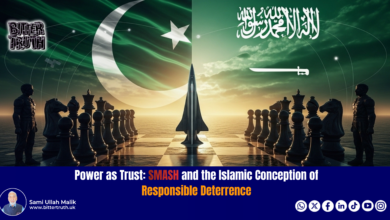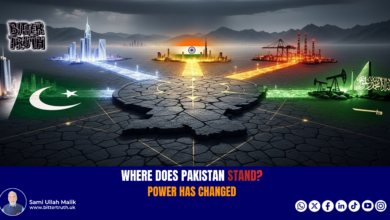The Weakness of Muslim Thought in the Storm of the West
The Balance of Freedom of Expression and Its Limits
The meaning and definition of “freedom of expression” is that everyone has the right to openly present their viewpoints, raise questions, disagree, and offer criticism. However, no one is allowed to defame, slander, or harm others by making baseless accusations. While criticism is indeed a rightful aspect of freedom of expression, it is crucial to remember that where legitimate criticism ends, disrespect often begins—a boundary every society deems unacceptable. Some individuals, however, cross all limits, believing that hate speech, incitement, personal defamation, disrespect toward religious beliefs, or insult to respected figures fall within the remit of free expression. Such actions are a blatant violation of ethical freedom of expression and reveal the perpetrators’ moral decline. In any society, freedom of speech does not extend to the point of harming others’ sentiments. Each society has defined the boundaries of free expression according to its own values.
According to the United Nations General Assembly’s 1966 “ICCPR” resolution, any speech or writing that opposes or offends any religious, national, or ethnic group within a country or promotes hatred or contempt against them must be legally restricted by that country. Additionally, various European nations have implemented numerous restrictions on freedom of expression. I would like to highlight a notable ruling issued on October 26, 2016, by the European Court of Human Rights (ECHR), which stated that insults against the Prophet Muhammad exceed acceptable limits of free expression, potentially inciting prejudice and endangering religious harmony. This decision was rendered in response to an Austrian woman’s appeal against her sentence for making derogatory comments about the Prophet Muhammad. This verdict does not infringe upon fundamental human rights.
It is worth noting that the ECHR, based in Strasbourg, France, carefully balanced the woman’s right to free expression against the right to protect others’ religious sentiments. Identified only as “ES,” this woman delivered several speeches under the title “Basic Information on Islam” in 2008 and 2009, wherein she made statements about the Prophet Muhammad. She was subsequently tried in a Vienna court and fined 480 euros in February 2011 for her derogatory remarks about religious principles. This decision was upheld by the Austrian appellate court and later, in 2013, dismissed by the Supreme Court as well. This ruling was issued by a seven-judge panel. The woman then appealed to the ECHR, citing Article 10 of the European Convention on Human Rights, claiming that Austrian courts had failed to protect her right to free expression, but her appeal was rejected.
What is Article 10? Article 10 grants the right to free expression but also sets restrictions, stating that with the right to freedom comes a responsibility to avoid infringing upon the rights and sentiments of others. This freedom must operate within the framework of democratic society, observing laws, customs, and conditions without offending others. Following this decision, some propagated the notion that European countries are moderate, free-spirited, and uphold equal rights for all, treating all religions and people without discrimination. However, a clear pattern of double standards can be observed in their policies.
For a long time, there has been a continual trend of disrespect toward Prophet Muhammad under the pretext of freedom of expression. Social media is filled with attempts to ridicule and mock the Prophet as much as possible, which has deeply angered the entire Muslim world. Each instance of disrespectful caricatures or writings triggers a wave of protests, rallies, and expressions of outrage throughout the Muslim world. This protest is not limited to Muslims alone; a considerable number of non-Muslims, who understand the importance of respect and reality, stand with Muslims. This collective sentiment underlines that disrespecting sacred figures is something beyond human tolerance. Islam is a faith that not only respects all Prophets sent before but also acknowledges the honor and reverence due to the religious leaders of other religions, considering them worthy of the same respect as God’s Prophets. The Quran has taught us:
آمَنَ الرَّسُولُ بِمَاأُنزِلَ إِلَيْهِ مِن رَّبِّهِ وَالْمُؤْمِنُونَ۔کُلٌّ آمَنَ بِاللَّهِ وَمَلَائِكَتِهِ وَكُتُبِهِ وَرُسُلِهِ،لَانُفَرِّقُ بَيْنَ أَحَدٍمِّن رُّسُلِهِ وَقَالُواسَمِعْنَاوَأَطَعْنَا غُفْرَانَكَ رَبَّنَا وَإِلَيْكَ الْمَصِيرُ۔
The Messenger has believed in what was revealed to him from his Lord, and [so have] the believers. All of them have believed in Allah and His angels and His books and His messengers, [saying], “We make no distinction between any of His messengers.” And they say, “We hear, and we obey. [We seek] Your forgiveness, our Lord, and to You is the [final] destination.”
In response to the disrespect shown towards the Prophet Muhammad (peace be upon him), Muslims around the world cannot stoop to the same level as those who insult him. Every holy figure is respected and revered in Islam, so it’s inconceivable that Muslims would respond by insulting other religions’ prophets or sacred figures. Those who engage in such disrespect might be waiting for Muslims to retaliate in a similar manner, potentially using it as an excuse for further provocation. However, rather than descending to such depths, Muslims worldwide have instead chosen the path of peaceful protest, raising their voices against the injustice rather than resorting to violent responses. With the grace of Allah, these protests often yield positive outcomes, underscoring that blatant disrespect cannot be justified under the guise of free expression.
Another significant factor is the demographic change in France, where, according to the 2019 census, out of a total population of 66 million, six million are Muslims. Official reports show that the Muslim population is increasing annually by 4%, and according to reputable sources such as the Pew Research Centre, Muslims could make up the majority by 2050, possibly shifting the power dynamics in the country.
France also stands out as the European country with the highest number of practising Muslims. Around 78% of Muslims in France actively practise their faith, with 84% observing Ramadan fasting. This growing visibility of Muslims and their faith has alarmed certain segments of society, especially as the rate of atheism and religious indifference rises in France, where over 60% of the population identifies as irreligious, and Christianity is on the decline. The increasing numbers of individuals converting to Islam across Europe, along with this decline in Christianity, is a cause of concern for religious authorities like the Vatican. A prominent international journal also reveals that around 60% of children in France are born out of wedlock, the highest percentage globally. This lack of social cohesion reflects why there is often a lack of respect for the most revered personalities, such as the Prophet Muhammad (peace be upon him).
Though Muslim societies also face sectarianism, we do not encounter the kind of disrespect seen in Western societies. However, in the name of free expression, the widespread influence of social media has led to damaging consequences. Unverified news is often disseminated without scrutiny, and the life of an innocent girl and her family can be irrevocably harmed. Even though she and her parents may publicly denounce any association with such incidents, the emotional distress and harm caused to her family and society cannot easily be repaired. This rush to circulate unverified information clearly defies the divine instruction found in the Quran, which advises:
يَا أَيُّهَا الَّذِينَ آمَنُوا إِن جَاءَكُمْ فَاسِقٌ بِنَبَإٍ فَتَبَيَّنُوا أَن تُصِيبُوا قَوْمًا بِجَهَالَةٍ فَتُصْبِحُوا عَلَىٰ مَا فَعَلْتُمْ نَادِمِينَ(الحجرات:6)
O you who have believed, if there comes to you a disobedient one with information, investigate, lest you harm a people out of ignorance and become, over what you have done, regretful. (Al-Hujrat 49:6)
Similarly, the Prophet Muhammad (peace be upon him) also advised:
عَنْ حَفْصِ بْنِ عَاصِمٍ قَالَ: قَالَ رَسُولُ اللهِ صَلَّى اللهُ عَلَيْهِ وَسَلَّمَ: «كَفَى بِالْمَرْءِ كَذِبًا أَنْ يُحَدِّثَ بِكُلِّ مَا سَمِعَ
“It is enough for a person to be considered a liar that they narrate everything they hear.”
Once again, our country faces issues concerning constitutional amendments that have plunged the nation into uncertainty and confusion. The government’s haste, coupled with institutional incompetence, has further fuelled this chaos rather than resolving it. While the specific implications of these amendments are yet to be fully understood, Ibn Khaldun’s observations from seven centuries ago seem to resonate with the current state:
“A conquered nation tends to mimic the conqueror. They adopt the victor’s clothing, symbols of power, culture, and customs, and even start to identify their past with the history of the conqueror. Eventually, they even walk as the conqueror does, believing in the conqueror’s authority and skill as if it were an absolute truth.”
When societies succumb to this, they lose their moral compass and abandon their principles. As time passes, people become so disconnected from their heritage that they only live for base desires, reduced to mere survival instincts.
When states fail, and nations decline, they are overrun with charlatans, beggars, hypocrites, and false witnesses. Professionals lose value, governance becomes chaotic, and the difference between truth and lies blurs. The line between honest efforts and subversion vanishes, while real intellect and morality are compromised.
In the cacophony of preachers, the voices of intellectuals are often drowned out. Chaos reigns in the markets, and loyalty is traded as a commodity. Concepts of nationalism, patriotism, belief, and fundamental aspects of religion fade, while even close family members accuse each other of betrayal. Eventually, conditions deteriorate to the point where people have only one course of action left—migration. Talk of fleeing these circumstances becomes commonplace, and the number of emigrants rises. The homeland becomes no more than an inn, with belongings reduced to travel bags. Pastures lie desolate, the homeland becomes a memory, and memories turn into tales.
Ibn Khaldun, may God have mercy on you! Were you prophesying our future? Seven centuries ago, you saw clearly what we still fail to comprehend today. If only these insights could reach our ruling class and the people, who consider themselves all-knowing as they accelerate their fall into ruin. Muslim scholars had long ago grasped the bleak path awaiting the Muslim world, as they were visionaries, not shortsighted. If only we could regain our footing now, perhaps the Ummah could find a way to rebuild what has been lost. However, the sincere and conscientious leadership required for such a revival is sorely lacking.
Feel free to exercise your freedom of speech, but always remember to act with such responsibility that no one may one day complain about you before Allah.







Assalamualaikum
Very knowledgeable article indeed.
Jazak Allah khair